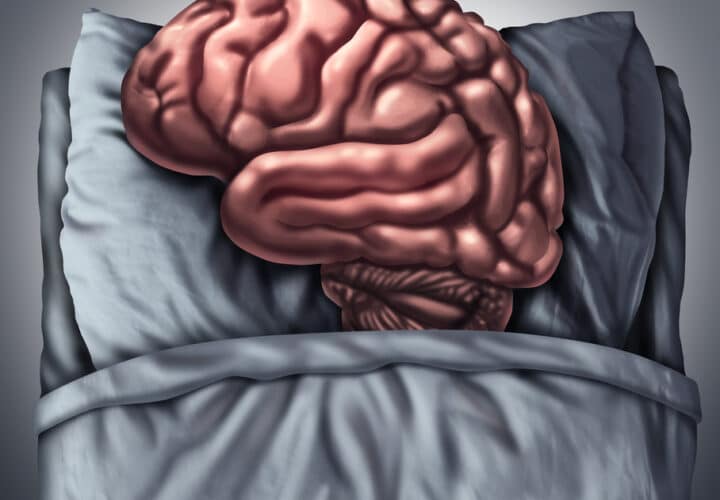According to a 2018 study, daytime sleepiness could be an indicator for Alzheimer's in older adults.
Sometimes, a potential Alzheimer’s diagnosis is obvious: the patient is getting lost on their own street, experiencing personality changes or forgetting the phone number they’ve had for decades. But scientists are beginning to uncover more subtle ways that Alzheimer’s manifests years before more troublesome symptoms appear. According to a 2018 study published in JAMA Neurology, daytime sleepiness could be an indicator for Alzheimer’s in older adults.
We know that sleep and Alzheimer’s are linked. Disturbed sleep patterns have been shown to be a precursor to Alzheimer’s, years before a diagnosis. It’s thought that the brain clears a toxic protein called beta-amyloid during sleep. Alzheimer’s is associated with a beta-amyloid build-up that accumulates and forms into plaques, killing off neurons. But what the team of researchers at the Mayo Clinic wanted to know was this: Did the beta-amyloid cause the disrupted sleep? Or did disrupted sleep cause the beta-amyloid build-up?
The research team looked at an already-existing sleep study of almost 3,000 people, selecting 283 people over the age of 70 who did not have dementia. Those people answered several questions about their sleep habits and agreed to periodic brain scans for amyloid over a seven-year period.
Twenty-two percent of the participants reported problems with daytime sleepiness, a sign of disrupted sleep. When their brain scans were compared with those who didn’t report daytime sleepiness, researchers saw an increased build-up of amyloid from beginning to end in the daytime sleepers. The amyloid in those people was also concentrated in the anterior cingulate and cingulate precuneus, two regions of the brain that typically show high levels of amyloid in Alzheimer’s patients.
Because this was an observational study and not an experimental study, cause and effect cannot be established, so we still don’t know whether excessive daytime sleepiness causes beta-amyloid to accumulate or if beta-amyloid is the reason daytime sleepiness occurs.
What we do know, according to study authors, is that “participants with excessive daytime sleepiness were more vulnerable to Alzheimer’s pathologic processes.” What that means is that sleep does have an effect on the development of Alzheimer’s, though we don’t know to what extent. Study authors called for more research on sleep patterns of people without dementia, much earlier than when symptoms of dementia occur, in order to assess whether treating sleep disorders can prevent the toxic beta-amyloid from piling up.
This study was published in JAMA Neurology.


